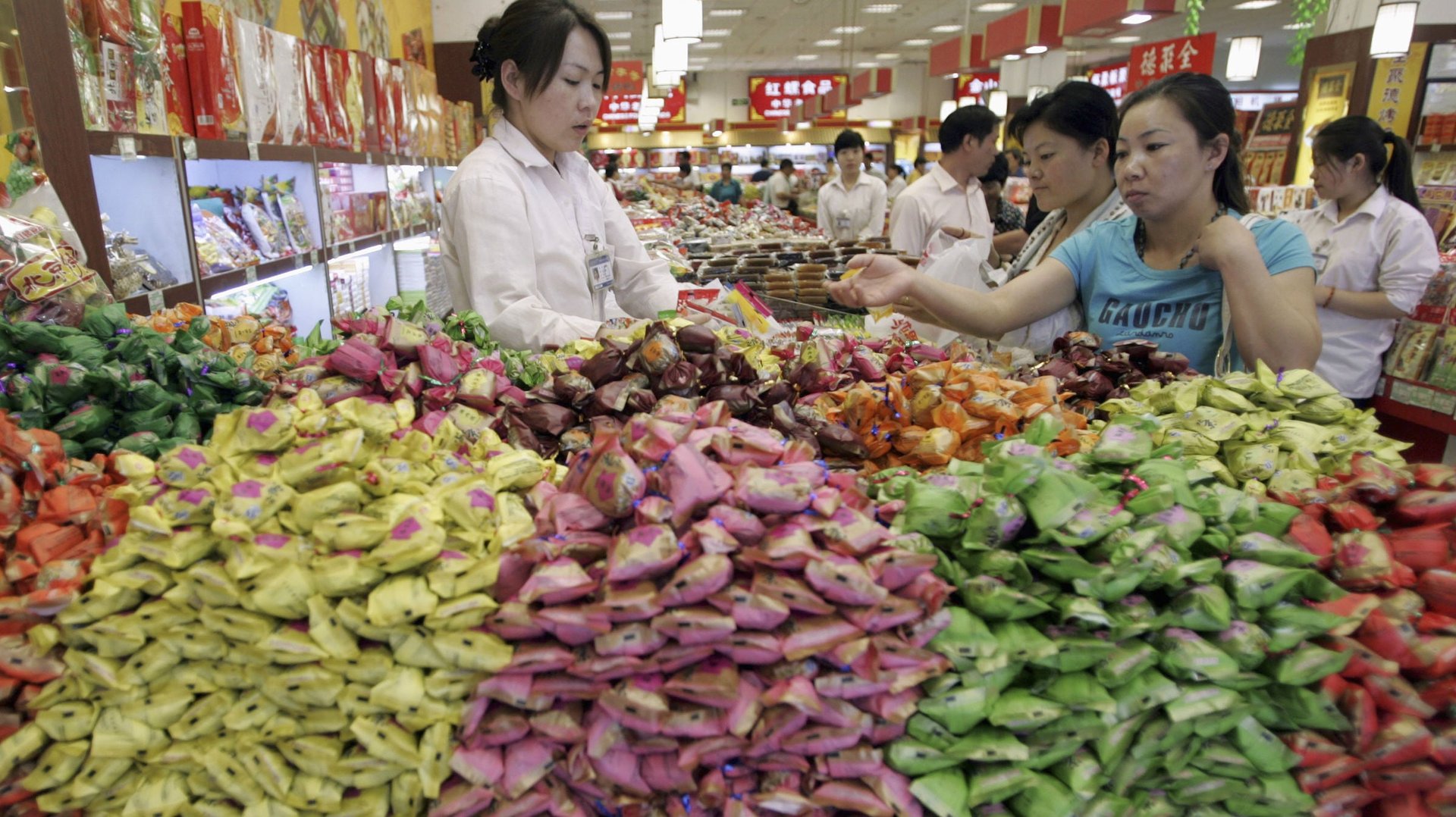China’s latest food outrage—foreign-born, this time—is gelatin made from cast-off leather scraps
Every March in China, state-owned TV celebrates World Consumer Rights Day by going after companies—usually foreign ones—who have allegedly infringed on the rights of Chinese shoppers. Past targets have included tech companies like Apple, but this year China Central Television (CCTV) went for the gross-out factor.


Every March in China, state-owned TV celebrates World Consumer Rights Day by going after companies—usually foreign ones—who have allegedly infringed on the rights of Chinese shoppers. Past targets have included tech companies like Apple, but this year China Central Television (CCTV) went for the gross-out factor.
According to CCTV (video in Chinese), Germany’s Gelita processes some 3,000 tons of gelatin from discarded leather every year, to sell to Chinese companies that use the gelatin in everything from gummy candy to medicine capsules.
Gelita, which was not immediately available for comment when contacted by Quartz describes itself as the world’s largest manufacturer of soft gelatin capsules. Edible gelatin, made from animal collagen, is used in food, medicine and health supplements, whereas industrial gelatin from chemical ingredients is only meant for things like furniture.
So far, a few local Chinese gelatin retailers have distanced themselves from Gelita and assured shoppers that they purchase from different suppliers. The focus on Gelita is a sign of how the country’s enduring food safety problems have people more worried than ever about where their food comes from.
In 2012, Chinese officials arrested 22 people for selling industrial gelatin laden with chromium, believed to cause cancer, to capsule manufacturers. Since then, Chinese shoppers have questioned the gelatin that’s used in bubble tea, and Chinese state media have issued instructions to the public on how to spot counterfeit ejiao, a popular Chinese medicine made from donkey hide collagen.
But highlighting a food safety case may be part of CCTV’s effort to win back viewers who haven’t been impressed with its indictment of foreign companies. In October, a program on Starbucks’ prices in China caused a backlash online from bloggers who called on the network to focus instead on big state-run firms that profit from their monopolies, but deliver sub-par services. Last year’s program was widely ridiculed after propaganda officials tried to give social media celebrities identical talking points.
The focus on food safety could also have the added benefit of bolstering China’s own gelatin producers, as Chinese consumption of food using gelatin and health supplements grows. (The Asia Pacific gelatin market is expected to grow faster than the world average, a compound annual growth rate of 7.08% between 2012 and 2018, compared to the global rate of 6.75% for that same period.) By midday on March 17, China’s largest gelatin producers had seen a bump: Shandong Dong E Jiao’s stock prices rose 0.51%, and shares of Qinghai Gelatin, Jinling Pharmaceutical and Baotou Dongbao Bio Tech all jumped 10%.